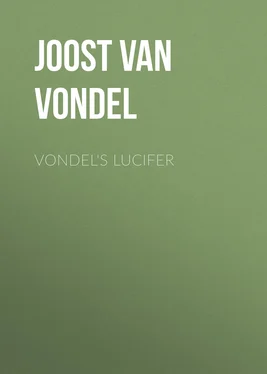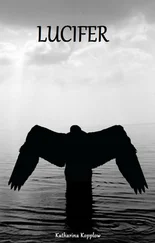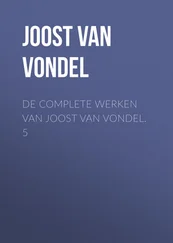Joost Vondel - Vondel's Lucifer
Здесь есть возможность читать онлайн «Joost Vondel - Vondel's Lucifer» — ознакомительный отрывок электронной книги совершенно бесплатно, а после прочтения отрывка купить полную версию. В некоторых случаях можно слушать аудио, скачать через торрент в формате fb2 и присутствует краткое содержание. Издательство: Иностранный паблик, Жанр: foreign_dramaturgy, Драматургия, foreign_antique, foreign_prose, на английском языке. Описание произведения, (предисловие) а так же отзывы посетителей доступны на портале библиотеки ЛибКат.
- Название:Vondel's Lucifer
- Автор:
- Издательство:Иностранный паблик
- Жанр:
- Год:неизвестен
- ISBN:нет данных
- Рейтинг книги:5 / 5. Голосов: 1
-
Избранное:Добавить в избранное
- Отзывы:
-
Ваша оценка:
- 100
- 1
- 2
- 3
- 4
- 5
Vondel's Lucifer: краткое содержание, описание и аннотация
Предлагаем к чтению аннотацию, описание, краткое содержание или предисловие (зависит от того, что написал сам автор книги «Vondel's Lucifer»). Если вы не нашли необходимую информацию о книге — напишите в комментариях, мы постараемся отыскать её.
Vondel's Lucifer — читать онлайн ознакомительный отрывок
Ниже представлен текст книги, разбитый по страницам. Система сохранения места последней прочитанной страницы, позволяет с удобством читать онлайн бесплатно книгу «Vondel's Lucifer», без необходимости каждый раз заново искать на чём Вы остановились. Поставьте закладку, и сможете в любой момент перейти на страницу, на которой закончили чтение.
Интервал:
Закладка:
"Palamedes" is a tempestuous defence of the great statesman Oldenbarneveldt—a defence full of intemperate passion, bitter reproach, and burning satire. How fiercely glows there, in each word, in each answer, in transparent allusion and in scornful irony, the fire of party spirit! How often, too, do we there hear the voice of the poet himself, as it trembles with tender sympathy or with lofty indignation!
"Gÿsbrecht van Amstel," a subject dearer to the burghers of Amsterdam than most others, is illuminated with the soft glimmer of altar-candles mingled with airy incense. That same light, that same perfume, we also perceive in "Maeghden," "Peter en Pauwels," and "Maria Stuart."
The Christ-like, humble thankfulness of a Dutch burgher falls upon our ears in the "Leeuwendalers," that charming pastoral, in which the wanton play of whistling pipe and reed is constantly relieved by the silvery pure tones of ringing peace-bells.
Does the history of the development of the Vondelian drama teach us more about the man Vondel, it also most clearly shows us the evolution of the artist. Especially after his translation of "Hippolytus" he had weaned himself from the style of Seneca. More and more he became filled with the grandeur of the Greek tragedians, Sophocles and Euripides above all others. Æschylus he had not yet made his own; that hour was not yet come.
In "Gÿsbrecht van Amstel" we feel, for the first time, that Vondel acknowledges the Greeks as his masters, that he strives to follow them in their sublime simplicity; in their naturalness, that never degenerates to the gross; in their freedom of movement, so different from the stiffness of the school of Seneca; in the exquisitely delicate manner in which the lyric is introduced into the drama. In "Joseph in Dothan," "Leeuwendalers," and "Salomon," we behold the poet pursuing the same path, and here the influence of the Greeks is still more perceptible.
We have attempted in a few rapid strokes to give a brief outline of the time in which the tragedy "Lucifer" had its origin, and also of the man, the poet, who created it.
When Vondel first conceived the plan of writing this tragedy is not known. However, it is well known that this subject had early made an impression upon him. In the collection of prints entitled "Gulden Winkel" (1613), for which Vondel wrote the accompanying mottoes, we already find the Archangel whom God had doomed to the pit of hell. In the "Brieven der Heilige Maeghden" (1642), and in "Henriette Marie t'Amsterdam" (1642), we also find mention of the revolt of the Archangel. In the first-named work the strife between Michael and Lucifer, with their legions, is already seen in prototype. About 1650 he had undoubtedly resolved upon a plan to expand this subject into a tragedy.
Was the fallen Archangel for a long period thus ever present to the poet's eye? Did that subject so enthrall him that, at last, he could no longer resist the impelling desire to picture it after his own fashion? For the causes of this interest we shall not have far to seek.
The seventeenth century was, more than almost any other, the age of authority, and "Lucifer" is the tragedy of the individual in his revolt against authority. Vondel, the Catholic Christian, to whom the ruling power was holy—holy because it came from God; Vondel, the Amsterdam burgher, reared in the fear of the Lord, and full of reverence for those in authority as long as his conscience approved; Vondel must thus have been deeply impressed by the thought of the presumptuous attempt of the Stadholder of God, "the fairest far of all things ever by God created," in his revolt against the "Creator of his glory." Out of this deep agitation this tragedy was born.
Only a genius such as that of Vondel or Milton could bring itself to undertake so dubious a task—out of such material to create a poem; only the highest genius could succeed in such gigantic attempt. Only such a poet can translate us on the mighty wings of his imagination into the portals of heaven; can present to us angels that at the same time are so human that we can put ourselves in their place, but who, nevertheless, remain for us a higher order of beings; can dare to bring into a drama a representation of God, without offending His majesty.
With chaste taste the poet has only rapidly sketched the scene of the drama; by means of a few suggestive strokes, awaking in reader and hearer a sympathetic conception: an illimitable spaciousness radiant with light; an eternal sunshine, more beautiful than that of earth, mirroring itself in the blue crystalline, above which hover hosts of celestial angels; here and there in the background, the dazzling pediments, towers, and battlements of ethereal palaces; far away, upon the heights beyond, the golden port, from which God's "Herald of Mysteries" came down into view. The earth lies immeasurably far below; high, high above, "So deep in boundless realms of light," God reigns upon His throne.
In that endless vast live and move the inhabitants of Heaven in tranquil enjoyment. "Grief never nestled 'neath those joyful eaves" until the creation of man. Pride and envy now awake in the breasts of the angels, and their suffering begins.
Lucifer's passionate pride, which in its outbursts occasionally reminds us of the heroes of Seneca; his dissimulation in the conversation with the rebellious angels; his wretchedness when Rafael has opened his eyes to an appreciation of his position; his obstinate resistance and untamed defiance—all this Vondel has portrayed for us in a masterly manner. Belzebub, more than Lucifer, is the real genius of evil, the wicked one. He is this in his inclination towards subtle mockery and sarcasm; in his hypocrisy; in his wily use of Lucifer's weakness to incite him to destruction; in the art with which he, while himself behind the curtain, directs the course of events.
After the grand overture of the drama, wherein men and angels are placed over against one another, we see how, in the second act, Lucifer comes on the scene, mounted on his battle chariot, excited, embittered; and then the action develops itself in a remarkably even manner. The clouds roll together; more threateningly, more heavily they impend; the light that glows from the towers and battlements of Heaven grows tarnished; the seditious angels gradually lose their lustre; the thunder approaches with dull rumblings; one moment it is stayed, even at the point of outbursting, where Rafael, "oppressed and wan," throws himself appealingly on Lucifer's neck; then it precipitates itself in a terrible storm of strife between desperate rage and the powers above. The fall of man is the sombre afterpiece of this intensely interesting drama.
All of this is discussed in verses that know not their equal in nobility of sound, in fulness and purity of tone, in rapidity of change from tenderness to strength, in wealth of coloring.
Through its opulence and beauty this tragedy holds a unique place in our literature. Only "Adam in Ballingschap" can be placed beside it. Only Vondel can with Vondel be compared. If, however, one should compare this production with the best that has been produced in this kind of poetry by other nations, its splendor remains undimmed; beside the masterpieces of Æschylus, Dante, and Milton, Vondel's maintain an equal place.
To this tragedy and to other works of Vondel and of some of our other poets we proudly point, if strangers ask us in regard to our right to a place in the world's literature. It could, therefore, not be otherwise than that a Netherlander who loves his countrymen should be glad when the bar between his literature and that of the outside world is raised; when other nations are furnished occasion to admire one of our national treasures, and are thereby enabled to have a better knowledge of the character and the significance of our people.
Читать дальшеИнтервал:
Закладка:
Похожие книги на «Vondel's Lucifer»
Представляем Вашему вниманию похожие книги на «Vondel's Lucifer» списком для выбора. Мы отобрали схожую по названию и смыслу литературу в надежде предоставить читателям больше вариантов отыскать новые, интересные, ещё непрочитанные произведения.
Обсуждение, отзывы о книге «Vondel's Lucifer» и просто собственные мнения читателей. Оставьте ваши комментарии, напишите, что Вы думаете о произведении, его смысле или главных героях. Укажите что конкретно понравилось, а что нет, и почему Вы так считаете.












